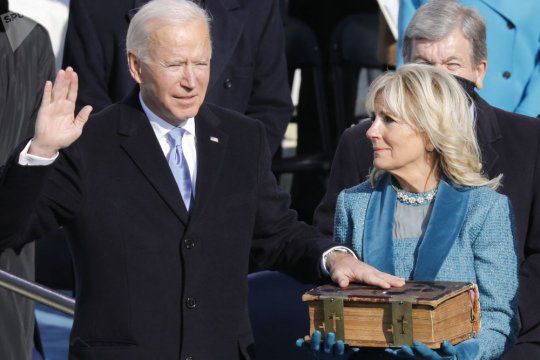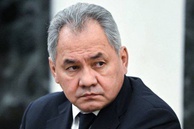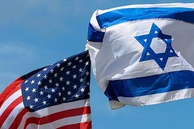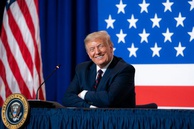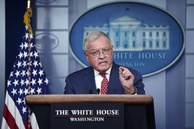On January 20, 2021 the newly elected US President Joseph Biden was sworn in as the 46th president of the United States. It looks like none of the previous 45 presidents had to deal with such a huge burden of problems inherited from the predecessor, both in domestic and foreign policies.
On his first day in office President Biden signed about 15 decrees that annul a number of resolutions by the ex-President Donald Trump.[1] However, it is hardly possible to wipe out all of Trump’s provocatively empathizing decrees with just one go even if at such a high level. This requires scrupulous work. And it is this kind of work that is needed with regards to the Islamic Republic of Iran (IRI).
Many political analysts, including those in America, believe that foreign policy will not top the agenda of the Biden administration. Nevertheless, he will have to tackle many issues which resulted from Trump’s policy beyond the bounds of the US. One of the most pressing ones is the Middle East, which abounds in hot spots.
What makes the issue of the Middle East special is that no matter where the newly elected president casts his reformist glance – on US-Arab and US-Israeli relations, on Palestinian-Israeli conflict, on the situation in Yemen and Lebanon, Syria and Iraq, Afghanistan and Kurdistan, in the Persian Gulf – everywhere he faces Iran. Tehran has spread its influence to nearly the whole of the Middle East.
The main thing is to reactivate JCPOA
Given the situation, the administration of Joe Biden, who repeatedly called for a diplomatic solution to the Iranian issue, is doomed to a dialogue with IRI. Here, the new president is destined to encounter a variety of “stumbling blocks” which, in the opinion of Washington, incorporate human rights in Iran, Iran’s policies in the region and worldwide, its missile program, and its nuclear project. However, no one doubts that the nuclear program is of primary importance and of global value. A solution to the Iranian nuclear program would both stabilize the nuclear non-proliferation regime and would pave the way if not for a complete and final settlement of the other Iran- and region - related issues, then to a comprehensive discussion and to the arrival at mutual understanding on the positions of the opponents, which will, undoubtedly, reduce the existing tension.
For today, a key point in addressing the Iranian nuclear issue is re-activation of the Joint Comprehensive Plan of Action (JCPOA), in which both Tehran (the US sanctions are stifling the Iranian economy), and Washington (the political ideologeme of Democrat Joe Biden) are equally interested in. All this makes a promising signal to getting down to work.
As is known, the JCPOA was adopted by the five permanent members of the UN Security Council, as well as by Germany, the European Union and Iran in July 2015, was approved by the UN Security Council. Its purpose is to contain the IRI’s nuclear program, and to intensify the IAEA’s control of it with a view to prevent the possibility of creating nuclear weapons in exchange for the lifting of financial, economic and trade sanctions, imposed earlier by the IRI opponents. JCPOA provisions remain valid 5-25 years.
Iran’s commitments under the JCPOA Treaty somewhat differed from those of the counteragents. IRI was required to carry out a complicated technical restructuring of its nuclear infrastructure, take a wide range of measures to reduce, and in some areas, to curtail research and development projects, and to change nuclear research programs. Even taking into account the participation and assistance of the Iranian counteragents on the JCPOA and the IAEA, this means extensive but necessary for the nuclear non-proliferation, work.
Meanwhile, the United States (in the first place) and the European Union vowed to lift all anti-Iranian sanctions, introduced in connection with the Iranian nuclear program.
The adoption of the JCPOA opened up new opportunities to settle the Iranian nuclear issue and create a precedent for resolving nuclear and other disputable issues that emerge worldwide using the experience and example of this treaty.
However, Donald Trump, who came to power in the US in January 2017, struck a deadly knockout blow at this reasonable nuclear agreement. On May 8, 2018 President Trump pulled the USA out of the JCPOA Treaty and slapped tough sanctions on the IRI. Tehran had to respond – on May 8, 2019 it launched a stage-by-stage process to stop implementing the requirements set by the nuclear deal.
JCPOA – collapse history and the present
USA. President Trump, on leaving the nuclear agreement, recalled American experts and scientists who under the Plan worked in Iran carrying out the restructuring of the IRI nuclear infrastructure, reformatting the nuclear facilities so as to make them unfit for being used to produce nuclear weapons. For instance, a working group consisting of representatives of the Atomic Energy Organization of Iran, the Atomic Energy Agency of China and the US Energy Department was set up to work on the heavy water reactor IR-40 in Araks, with a capacity of producing up to 10 kg of weapons-grade plutonium a year, which is equivalent to the amount of fissionable material needed for about two-three nuclear warheads on the basis of plutonium. In 2017 the Americans left the facility. The same happened to the other US projects within the JCPOA. The US also stopped financing projects aimed at implementing the provisions of the nuclear agreement.
The Trump administration did not withdraw from the nuclear deal without pomp, pulling a PR trigger by bringing back the former sanctions and introducing the tougher ones (all in all, about 100 sanctions), and deliberately delaying the process of lifting anti-Iranian sanctions on the part of the EU.
European Union. Britain, France and Germany, as participants and co-authors of JCPOA, came up against President Trump’s policy on Iran. With the approval of Russia and China, European countries managed to work out, register and launch the Instrument for Supporting Trade Exchanges with Iran – INSTEX. Unfortunately, this Instrument proved ineffective under the pressure of US sanctions, which affected any legal and physical persons that had business ties with the IRI.
Moreover, Trump’s sanctions hit hard not only on the Iranian economy, but also on the reconstruction of Iranian nuclear facilities within the JCPOA. In May 2020 the United States annulled temporary exemptions from the earlier introduced regime of sanctions against the Iranian nuclear program. These exemptions made it possible for Tehran to obtain assistance from JCPOA signatories in acting on the Plan’s requirements to present guarantees of the peaceful nature of its nuclear program. They affected, in the first place, projects which were pursued (without Americans) by Russian, Chinese, European scientists and experts in compliance with the requirements of the JCPOA. This concerns operations on the Fordo works and on the Araks reactor.
European participants of the nuclear deal were unable to resist the American sanctions. By early 2021 the JCPOA de facto ceased to exist, under the attack of the US.
Russia and China. These countries – co-authors and active participants in negotiating, signing and implementing the JCPOA, which opposed any sanctions, - did their utmost to preserve the nuclear deal. That Iran has not de jure pulled out of it is to the credit of Moscow and Beijing.
Iran. Exactly a year after the US withdrawal from the JCPOA on May 8, 2019 Tehran announced a gradual pullout of its commitments under the nuclear deal. During this period Iranians returned their nuclear program to the 2015 level, and even exceeded this level on some points.
Iran breached the JCPOA (which was inevitable under the circumstances) practically on all points.
Tehran stopped the restructuring of the Fordo nuclear facility into a research center, so the plant will again become a uranium enrichment facility. The Natanz nuclear complex has expanded its capacity. The heavy water reactor in Araks is returning to its original state of a weapons-grade plutonium plant.
The number of active centrifuges is rising, as more and more cascades are formed of them. Being commissioned are the cutting-edge maximum efficiency centrifuges IR-2m, IR-4, IR-6.
Uranium enrichment level is rising from the permissible 3,67% to 4,1 and 20%.
The volume of enriched uranium reserves allowed under the agreement has increased 12 times. Heavy water reserves are on the rise as well.
The production of yellow cake (a uranium concentrate produced from uranium ore) which is used as a foundation for further enrichment, has increased eightfold.
IRI has launched preparations for the production of uranium metal, which can be used in nuclear reactors and weapons. It has to be explained that even weapons-grade uranium which is enriched in centrifuges to 90 % is not an explosive but a gas, which is not enough to produce an atomic bomb. To make it a weapon gaseous uranium needs to undergo a specific technological treatment which includes at least four or five stages. As a result, gas turns into a metal, which is used for making a nuclear warhead. Until recently, experts had doubts that Iran possesses the high technology and chemically pure substances to complete the process of transforming uranium from gas into metal. Now, it appears, that there are no more such doubts.
On December 1, 2020 Majlis ratified the “Strategic Plan for Counteracting Sanctions” as law. On December 2 the law received the approval of the Supervisory Council[2]. This document stipulates activization and intensification of IRI’s nuclear research, sets the uranium production limit at 120kg of 20% uranium per year, provides for accumulating uranium reserves, for using at least 1000 IR-2m centrifuges in underground facilities of the Natanz center, and for transferring all enrichment, research and development operations with the use of IR-6 centrifuges to a nuclear plant in Fordo.
Speaking in Majlis on December 1, deputy Abolfazl Amoui said that the Plan is designed to unlock the ban on the Iranian nuclear program and achieve the goals set by the “nuclear martyr” Mohsen Fakhrizadeh, who was killed by terrorists suspected of ties with Israel.[3]
On January 4 IRI announced the start of uranium enrichment to 20%. The next day they obtained the first results. Soon afterwards Atomic Energy Organization of Iran (AEOI) representative Behrouz Kamalvandi announced that Iran had made so much progress in the nuclear area that “we can easily enrich uranium to any level, even higher than 40, 60 and 90”. Mr.Kamalvandi specified that “in accordance with the new law (The Strategic Plan for Counteracting Sanctions) the AEOI is allowed to enrich uranium to more than 20% if it is necessary for other industries”, adding that “we are contemplating other industries as well”.[4] He did not specify, however, which industries he meant exactly. Could they be the military ones?
Iran’s view on the solution of the JCPOA problem
The law stipulates that within two months after its adoption (February 2021), the Iranian government is to suspend the regulating access of IAEA inspectors, in accordance with the nuclear deal, along with the Additional Protocol to the Agreement on IAEA Guarantees [5]. Three months after the adoption of the law, if Iran's banking operations in Europe and the volume of oil purchases from Iran do not return to a satisfactory level, the government will have to discontinue the voluntary implementation of the Additional Protocol.[6]
Majlis Deputy Ahmad Amirabadi pointed out on January 9 that if sanctions against IRI were not cancelled by February 21, particularly in banking, finance, and oil, “Iran will send IAEA experts out of the country and will surely discontinue the voluntary implementation of the Additional Protocol…<…>. The new administration of the US will get down to work on January 21. We have given the Americans one month to cancel sanctions, otherwise IRI will defend the interests of its people”. Saying that the main purpose of the JCPOA was the lifting of sanctions, which did not happen, the deputy concluded: «We see no reasons for acting on our commitments until sanctions are lifted».[7]
The above mentioned deputy Abolfazl Amoui confirmed on January 8: «Iran’s major goal in JCPOA is the cancellation of sanctions».[8]
Speaking on television the same day, Iran’s Supreme leader Ayatollah Khamenei said that the parliamentary decision (The Strategic Plan for Counteracting Sanctions), and the government’s measures to cut down on the commitments under the JCPOA are the right thing to do and are fully rational: «The Islamic Republic has been acting on its commitments, but in a situation when the other party is not acting on their commitments, we find it pointless to act on ours (under the JCPOA)». He added: «Of course, if the other side returns to their commitments, we will return to ours as well».
Ayatollah Khamenei emphasized: «We do not insist on the US returning to the nuclear agreement. Whether they will do it or not is not our business. We demand the lifting of sanctions. This is a right, earned by the Iranian people». In his words, the United States and European countries must guarantee Iranians this right.[9]
Iranian Foreign Minister Mohammad Javad Zarif, who was in Moscow, told his Russian counterpart Sergei Lavrov at a joint press conference on January 26: «What we have heard from the new US administration is just words. We will react to actions». In his words, when the United States lifts the illegally imposed sanctions, which run counter to the JCPOA and Resolution 2231 of the UN Security Council, when they stop punishing law-abiding countries, Iran will be ready to react in an appropriate way. That is, it appears that Tehran will be prepared to return to a complete implementation of its commitments under the JCPOA as soon as the United States lifts the sanctions.[10]
However, Iran’s opponents have little time, if at all, Iranian experts say. IRI government representative Ali Rabei has said that the United States and European countries of the JCPOA will not have a window of opportunities for acting on their commitments for ever. According to the schedule, the law approved by parliament, Mr.Rabei pointed out, the first steps to cut the number of inspectors working under the Additional Protocol will be taken in the first week of March. But inspectors working under the general Agreement on IAEA guarantees will continue their regular work as before. [11]
Clarifying Russia’s position on the JCPOA, Foreign Minister Sergei Lavrov said during a visit of his Iranian counterpart: «We are worried that Iran has to depart from acting on its voluntary commitments under the JCPOA. We understand that the problem stems from systematic years-long violation by the Trump administration of their commitments under Resolution 2231 of the UN Security Council, which approved the JCPOA».[12] The Russian minister expressed hope for a favorable outcome: «We hope that the currently taken efforts will produce good results and will preserve the JCPOA, and that the United States will get back to implementing the above mentioned resolution. This, in turn, will create conditions for complying with all the requirements of the nuclear deal by the Islamic Republic of Iran». [13]
However, the path towards a positive solution of the “Iranian issue” which would satisfy all parties, is thorny.
Even a perfunctory analysis of the work and statements by Iranian authorities suggest that Iran is ready to return to the scrupulous implementation of requirements under the JCPOA and cancel all the activities that go beyond the bounds of the Plan but ONLY AFTER the lifting of sanctions on the part of the United States and other countries. The deadline for decision taking (first of all, in Washington) is limited by the Iranians to two or three months. Next could come the withdrawal of IRI from the JCPOA de jure and the breakage of many agreements with the IAEA with unpredictable, but, clearly catastrophic, consequences.
But, considering the critical social and economic situation at home, the Iranian leadership will have to start a dialogue with the USA. It might be because of this that Tehran is urgently intensifying its nuclear activity and toughening its rhetoric, so that it could accumulate enough bargaining power ahead of an inevitable dialogue with the USA and other participants in the JCPOA.
US glance on the solution of the JCPOA issue
New US President Joe Biden said during his election campaign that he was willing to return the United States in the JCPOA and act towards resolving a whole range of issues related to Iran. He presented his plan in one of his September interviews: “First, I will make an unshakable commitment to prevent Iran from acquiring a nuclear weapon. Second, I will offer Tehran a credible path back to diplomacy. If Iran returns to strict compliance with the nuclear deal, the United States would rejoin the agreement as a starting point for follow-on negotiations. With our allies, we will work to strengthen and extend the nuclear deal's provisions, while also addressing other issues of concern. <…>. Third, we will continue to push back against Iran's destabilizing activities, which threaten our friends and partners in the region. <…> We will continue to use targeted sanctions against Iran's human rights abuses, its support for terrorism and ballistic missile program”.[14]
In brief, Biden’s idea is the following: negotiations – yes! (on the American conditions), but not only on the nuclear program, but on Iranian missiles, IRI’s activities in the Middle East and on human rights.
Having estimated Joe Biden’s position on the Iranian issue, we can state with 100% confidence that to resolve the range of problems outlined by the president in the foreseeable future is impossible. Tehran has no intention of conducting a dialogue with Washington on issues other than the nuclear one, which is closely connected to the lifting of sanctions.
In the above mentioned televised address IRI’s Supreme leader Ayatollah Khamenei said that any future talks with the West should be confined to the nuclear problem. In his opinion, Washington is the one trying to destabilize the region, whereas Tehran is the stabilizing agent, which must strengthen its friends in the region. Consequently, he made it clear that Iran’s regional presence would continue.
In the same way, Khamenei described the missile program and other military efforts as defensive, saying that the West wanted Iran to be “defenseless” so that enemies “would not be afraid to bombard our cities”, as Saddam Hussein did in the past decades. He argued that by improving its missile arsenal and other systems, Iran would be able to contain its enemies and make them reckon with Iran.[15]
As for the JCPOA, there are differences in principle between the positions of Ayatollah Khamenei and President Biden. Both put forward their conditions, insisting on the first move of the opponent. Biden requires IRI to return to the “nuclear condition” of 2015 before the US could lift sanctions, while Ayatollah Khamenei wants, in the first place, the lifting of American and other countries’ sanctions before it could return gradually to the JCPOA. Naturally, such positions lead to a deadlock.
In order to overcome this hypothetical deadlock (hypothetical because practical work on the reactivation of the JCPOA is yet to begin) the United States is considering several scenarios. Tough and mild. Dennis Ross, former special adviser to President Barrack Obama, now an employee of the Washington Institute of Middle East Policy, presents both.
The former option presupposes the use of the so-called “reserves” built by Trump. Dennis Ross, together with co-author Juan Zarate, writes: “The Trump administration’s wholesale withdrawal from the Iran nuclear agreement was a mistake and has given Iran an excuse to accelerate its nuclear program. Yet its “maximum pressure” campaign has certainly created leverage that should not be discounted. The supreme leader, Ali Khamenei, may be trying to force Iran onto the Biden administration’s agenda by, among other things, enriching uranium to 20% and showing that the Islamic Republic presents a problem that must be addressed. But, as his words in a recent speech indicate, the Iranian leader is doing so not because he wants the U.S. to rush to rejoin the nuclear deal but because he wants sanctions relief — which Iran should not get for free.”[16]
In his other article on Iran and the JCPOA Dennis Ross suggests using temporary agreements on specific issues related to the nuclear problem. One option would be to allow Iran access to some frozen Iranian accounts in exchange for freezing or reducing the reserves of low-grade uranium, or allowing some countries to purchase Iranian oil in exchange for Iran’s demolishing cascades of present-day centrifuges.[17] In essence, this is a «step by step» method, which, undoubtedly, makes the solution-finding process longer, but on the other hand, with every step it adds to mutual trust, which the two sides are lacking at the moment. Incidentally, the «step by step» method for solving the Iranian nuclear problem was suggested in 2011, by Sergei Lavrov, and this method has proved its efficiency for the JCPOA.
Conclusion
The International Crisis Group believes, and not without reason, that the arrival of the Biden administration in January 2021 may become instrumental in overcoming the nuclear and regional confrontation between the United States and the IRI. A revival of the American-Iranian diplomatic ties on the basis of the JCPOA could bring back this agreement’s considerable advantages in non-proliferation, revive contacts, which faded away overshadowed by the aggressive US maximalism towards Iran, and suggest the prospect of discussing issues beyond the nuclear dossier, in a constructive, rather than a confrontational manner. In the future, a nuclear agreement could pave the way to a dialogue between Iran and the Arab countries of the Gulf, supporting a diplomatic process backed by foreign and regional powers.
But a transition from confrontation to cooperation is bound to be a difficult process, which will require rising above the high level of mutual distrust and hard-going talks.[18]
The opinion of the author may not coincide with the position of the Editorial
[1] Website White House. 26.01.2021. https://www.whitehouse.gov/briefing-room/presidential-actions/
[2] Supervisory Council or the Council for the Protection of the Constitution (mistakenly referred to as the Council of Guards) consists of 12 members, 6 of whom are appointed by the supreme leader. The rest 6 are appointed by the Majlis on recommendation from the chairman of the supreme court. The Supervisory Council approves candidates to key posts, including candidates for president, members of the government and parliament. The Council’s main duty is to check that legislative bills comply with the Islamic law. All Majlis decisions are to be submitted to the Supervisory Council. In case of disagreement with the Sharia law, the bill is sent for elaboration. In addition, the Council has a right to veto any Majlis decision.
[3] Site Press TV. (Iran). 01.12.2020. Iran’s Parliament approves outlines of strategic action plan to counter sanctions. https://www.presstv.com/Detail/2020/12/01/639735/Iran-parliament-sanctions
[4] Site Fars News. (Iran). 18 of the month of Dey 1399. (07.01.2021). Kamalvandi: be rahati kader be ganisaziye 90 darsad niz hastim. (Persian) – Kamalvandi: we too can enrich uranium to 90%. https://www.farsnews.ir/news/13991018000500/%DA%A9%D9%85%D8%A7%D9%84%D9%88%D9%86%D8%AF%DB%8C-%D8%A8%D9%87-%D8%B1%D8%A7%D8%AD%D8%AA%DB%8C-%D9%82%D8%A7%D8%AF%D8%B1-%D8%A8%D9%87-%D8%BA%D9%86%DB%8C-%D8%B3%D8%A7%D8%B2%DB%8C-%DB%B9%DB%B0-%D8%AF%D8%B1%D8%B5%D8%AF-%D9%86%DB%8C%D8%B2-%D9%87%D8%B3%D8%AA%DB%8C%D9%85
[5] With a view to prevent further proliferation of nuclear weapons, the IAEA uses the Agreements on Guarantees. Guarantees mean a set of measures carried out by the IAEA to ensure that the state acts on its international commitments and does not use nuclear programs for creating nuclear weapons.
The bulk of the Agreements on Guarantees were signed with countries which at the international level and on the basis of the Nuclear Non-Proliferation Treaty, for which the IAEA is a controlling body, have assumed commitments not to possess nuclear weapons.
Facilitating the strengthening of the IAEA control is the Additional Protocol to the Agreements on Guarantees. Under the Protocol, states are required to grant the IAEA detailed information on all aspects of their work as part of the nuclear fuel cycle. They are also required to grant the IAEA the right to have unlimited access to nuclear facilities and use cutting-edge inspection technology. That is, the Additional Protocol expands the IAEA’s rights in carrying out the inspections and envisages: the lifting of restrictions on banning inspectors from accessing nuclear facilities, the easing of the visa regime, the possibility of conducting unplanned inspections and “surprise” inspections with a notification about the visit less than 24 hours before, the use of environmental control data for detecting undeclared activities etc. Such a control system makes it possible for the IAEA to provide more guarantees that the nuclear research will not switch from the peaceful to military purposes. Site IAEA UN. https://www.un.org/ru/ga/iaea/facts.shtml
[6] Site Fars News. (Iran). 25.01.2021. Iran: US Should Remove Sanctions First. https://www.farsnews.ir/en/news/13991106000300/Iran-US-Shld-Remve-Sancins-Firs
[7] Site Mehr. (Iran). 09.01.2021. If sanctions not lifted, IAEA inspectors to be expelled. https://en.mehrnews.com/news/168259/If-sanctions-not-lifted-IAEA-inspectors-to-be-expelled
[8] Site Tasnim. (Iran). 08.01.2021. Sanctions Removal Main Purpose of JCPOA: Iranian MP. https://www.tasnimnews.com/en/news/2021/01/08/2428590/sanctions-removal-main-purpose-of-jcpoa-iranian-mp
[9] Site Mehr.(Iran). 19 month Dey 1399. (08.01.2021). Rahbare engelyab: Varedate vaksene amrikaiyi mamu-ast. Garbiha movazefand tahrimhara bardarand (Persian). Leader of revolution: import of American vaccine banned. West must lift sanctions. https://www.mehrnews.com/news/5116795/%D9%88%D8%A7%D8%B1%D8%AF%D8%A7%D8%AA-%D9%88%D8%A7%DA%A9%D8%B3%D9%86-%D8%A2%D9%85%D8%B1%DB%8C%DA%A9%D8%A7%DB%8C%DB%8C-%D9%85%D9%85%D9%86%D9%88%D8%B9-%D8%A7%D8%B3%D8%AA-%D8%BA%D8%B1%D8%A8%DB%8C-%D9%87%D8%A7%D9%85%D9%88%D8%B8%D9%81%D9%86%D8%AF-%D8%AA%D8%AD%D8%B1%DB%8C%D9%85-%D9%87%D8%A7-%D8%B1%D8%A7-%D8%A8%D8%B1%D8%AF%D8%A7%D8%B1%D9%86%D8%AF
[10] Site IRNA (Iran). 26.01.2021. Zarif: Iran builds on actions, not words https://en.irna.ir/news/84200066/Zarif-Iran-builds-on-actions-not-words; Site ИА ТАСС. 26.01.2021. Zarif: Iran will return to nuclear deal commitments when US lifts sanctions. https://tass.ru/mezhdunarodnaya-panorama/10549071
[11] Site Mehr (Iran). 26.01.2021. Window of opportunity for US, EU not to remain open forever. https://en.mehrnews.com/news/169062/Window-of-opportunity-for-US-EU-not-to-remain-open-forever
[12] Site Russian Foreign Ministry. 26.01.2021. Q&A session of Foreign Minister Sergei Lavrov in course of joint press conference following talks with Foreign Minister of the Islamic Republic of Iran M.D.Zarif, Moscow, January 26, 2021. https://www.mid.ru/ru/vizity-ministra/-/asset_publisher/ICoYBGcCUgTR/content/id/4543027
[13] Ibid.
[14] Site CNN. 13.09.2020. Joe Biden. There’s a Smarter Way to Be Tough on Iran. https://edition.cnn.com/2020/09/13/opinions/smarter-way-to-be-tough-on-iran-joe-biden/index.html
[15] Site Mehr.(Iran). 19 month Dey 1399. (08.01.2021).
[16] Dennis Ross, Juan Zarate. Op-Ed: Are there pieces of Trump’s foreign policy worth keeping? Site Los Angeles Times. 27.01.2021. https://www.latimes.com/opinion/story/2021-01-27/foreign-policy-china-iran-donald-trump-joe-biden
[17] Dennis Ross. The coming Iran Nuclear Talks Openings and Obstacles. Site The Washington Institute for Near East Policy. 05.01.2021. https://www.washingtoninstitute.org/policy-analysis/coming-iran-nuclear-talks-openings-and-obstacles#main-content
[18] Site International Crisis Group. The Iran-U.S. Trigger List. The Big Picture. https://www.crisisgroup.org/trigger-list/iran-us-trigger-list
read more in our Telegram-channel https://t.me/The_International_Affairs

 11:43 05.02.2021 •
11:43 05.02.2021 •
